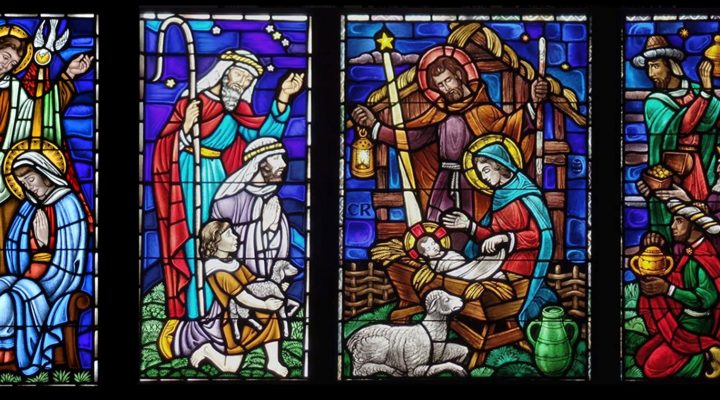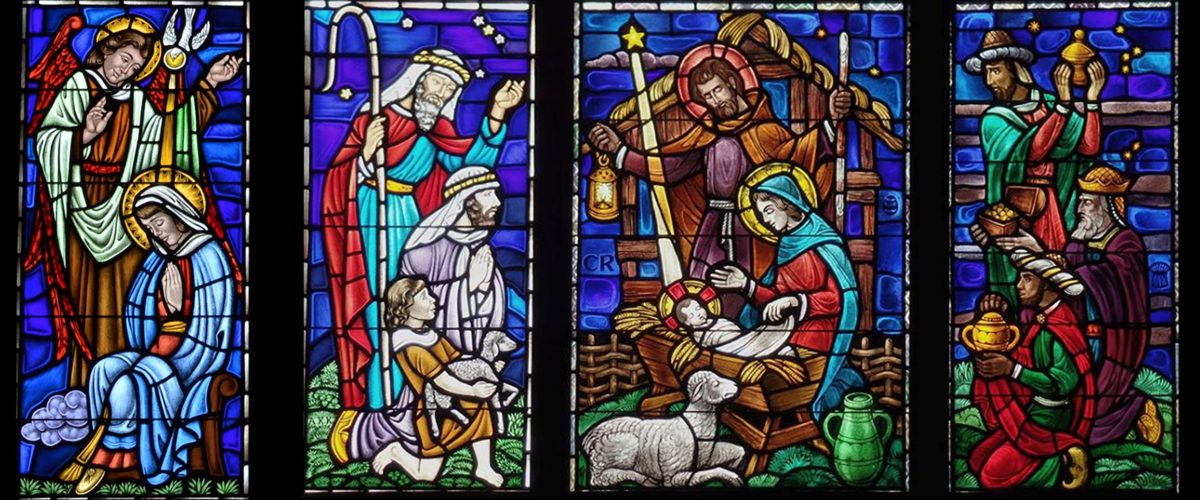The angel’s announcement to Mary follows the same pattern: “And now, you will conceive in your womb and bear a son, and you will name him Jesus. He will be great, and will be called the Son of the Most High, and the Lord God will give to him the throne of his ancestor David. He will reign over the house of Jacob forever, and of his kingdom there will be no end” (Luke 1:31-33).
There is no promise here of the glow of a second trimester or the cooing of a baby in the soft light of dawn; Mary’s son will be Joshua by name, a military leader and Moses’ successor; her son will occupy the throne of David and rule over the house of Jacob with an eternal kingdom.
“Small wonder that Mary is bewildered, bewitched, even, by what she hears.”
Small wonder that Mary is bewildered, bewitched, even, by what she hears. So Gabriel explains, “The holy spirit will come upon you, and the power of the Most High will overshadow you; therefore the child to be born will be holy; he will be called Son of God” (Luke 1:35). Again, he responds to her question, not with the mechanics of birth but with a description of her son. In both his initial promise and his response to her question, the weight of angelic words rests heavily on the upcoming rule of Mary’s unborn child.
It is not the biology of conception, even inspired conception, that grabs the spotlight in Luke’s gospel — or Matthew’s, for that matter. It is not the physiology of birth, even a miraculous one. Nor is it anatomy, even inexplicable anatomy, that lies at the center of this story. It is the scope of God’s story — a remembering, rescuing, redeeming God, who catalyzes these births to reshape history.
In Matthew’s Gospel, the genesis of Jesus from holy spirit recalls a story that spanned the magnificence of creation, the miracle of exodus, and the misery of an errant king.
In Luke’s Gospel, the Holy Spirit is joined at the hip to the power that will overshadow Mary. This verb, overshadow (episkiasei), is an evocative one because it, like so many of the nouns and verbs that cluster around the Holy Spirit in Matthew and Luke’s Gospels, is embedded in Israel’s history.
Israel’s poets, the psalmists, laid claim to this power. God’s pinions, they knew, could overshadow those who live in the shelter of the most high (Psalm 91:4). God, they knew, was a strong deliverer, who, claims the psalmist, “overshadowed my head in the day of battle” (Psalm 140:7).
And most poignant of all, when Israel, fresh from the exodus out of Egypt, built a tabernacle — a sacred tent at which Moses met God — they recognized the cloud of God’s glory that overshadowed that tabernacle in the wilderness so forcefully that “Moses was not able to enter the tent of meeting because the cloud settled upon it, and the glory of the LORD filled the tabernacle” (Exodus 40:35).
Divine rescue. Divine guidance. Divine glory. All this was palpable in those earliest days of liberation from Egypt, long before the advent of another empire, Rome, which overshadowed the likes of Zechariah, Elizabeth, Mary and Joseph.
“Later in Luke’s Gospel, the verb overshadow will reinforce another renewal of God’s glory.”
Later in Luke’s Gospel, the verb overshadow will reinforce another renewal of God’s glory. At the transfiguration of Jesus, “a cloud came and overshadowed them; and they were terrified as they entered the cloud. Then from the cloud came a voice that said, ‘This is my Son, my Chosen; listen to him!’” (Luke 9:34-35).
This is tabernacle language. The overshadowing cloud, coupled with the divine voice that reiterates what Jesus heard at his baptism, communicates that God is present with Jesus, Elijah and Moses on the Mount of Transfiguration, just as God safeguarded Israel in the mountain at Sinai.
For now, the power of God, the Holy Spirit, will overshadow a simple girl from Galilee who receives a straightforward if unsettling promise. The Holy Spirit again descends upon a sacred space — not now a tent in an unforgiving wilderness but the belly of a suddenly pregnant peasant.
 Jack Levison holds the W.J.A. Power Chair of Old Testament Interpretation and Biblical Hebrew at Perkins School of Theology at Southern Methodist University. He is known for his groundbreaking work on the Holy Spirit and topics both biblical and theological. This column is excerpted from his book An Unconventional God. Used here with permission of Baker Publishing, © 2020.
Jack Levison holds the W.J.A. Power Chair of Old Testament Interpretation and Biblical Hebrew at Perkins School of Theology at Southern Methodist University. He is known for his groundbreaking work on the Holy Spirit and topics both biblical and theological. This column is excerpted from his book An Unconventional God. Used here with permission of Baker Publishing, © 2020.
Also in this Advent series:
Advent reflection: An infinity of grace
Advent reflection: The advent of liberation
Advent reflection: The genesis of Jesus
Advent reflection: Holy eruption


